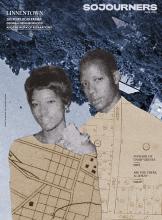IN THEOLOGIAN STANLEY Hauerwas’ influential book A Community of Character, he highlights the role narratives play in the formation and identity of a community. Stories have a descriptive function but also a formative function. Stories describe key events in the life of a community and preserve that community’s history. They also shape the community’s worldview and character. Stories influence the community’s ethos and commitments. They drive its actions. Gospel stories testify to the nature of Jesus’ mission and the ethos and commitments of the early church. They foreground Jesus’ character traits, which help shape our own ethical outlook and enable us to imagine an alternative moral space in society.
We live in a fraught political context where Christian identity has become a contested moral space. It’s a space increasingly shaped by dangerous nationalisms that celebrate oppressive power and that depict God in ways that provide theological justification for consolidation of power over others. However, the lectionary texts this month challenge just such depictions of God. They lift up the image of a God who suffers with the suffering rather than a triumphant God exercising domination. They feature characters, including Jesus, who insist that it matters what stories we tell and how we tell them.
What stories do we tell about the church today and how do we tell them? Do such stories shape our legacy as Christians and our moral imagination? How do we continue to tell those stories faithfully and meaningfully, allowing them to shape our lives, even in an era when many Christians are attracted to stories of a militant, oppressive God rather than to God’s motifs of justice?
Read the Full Article

